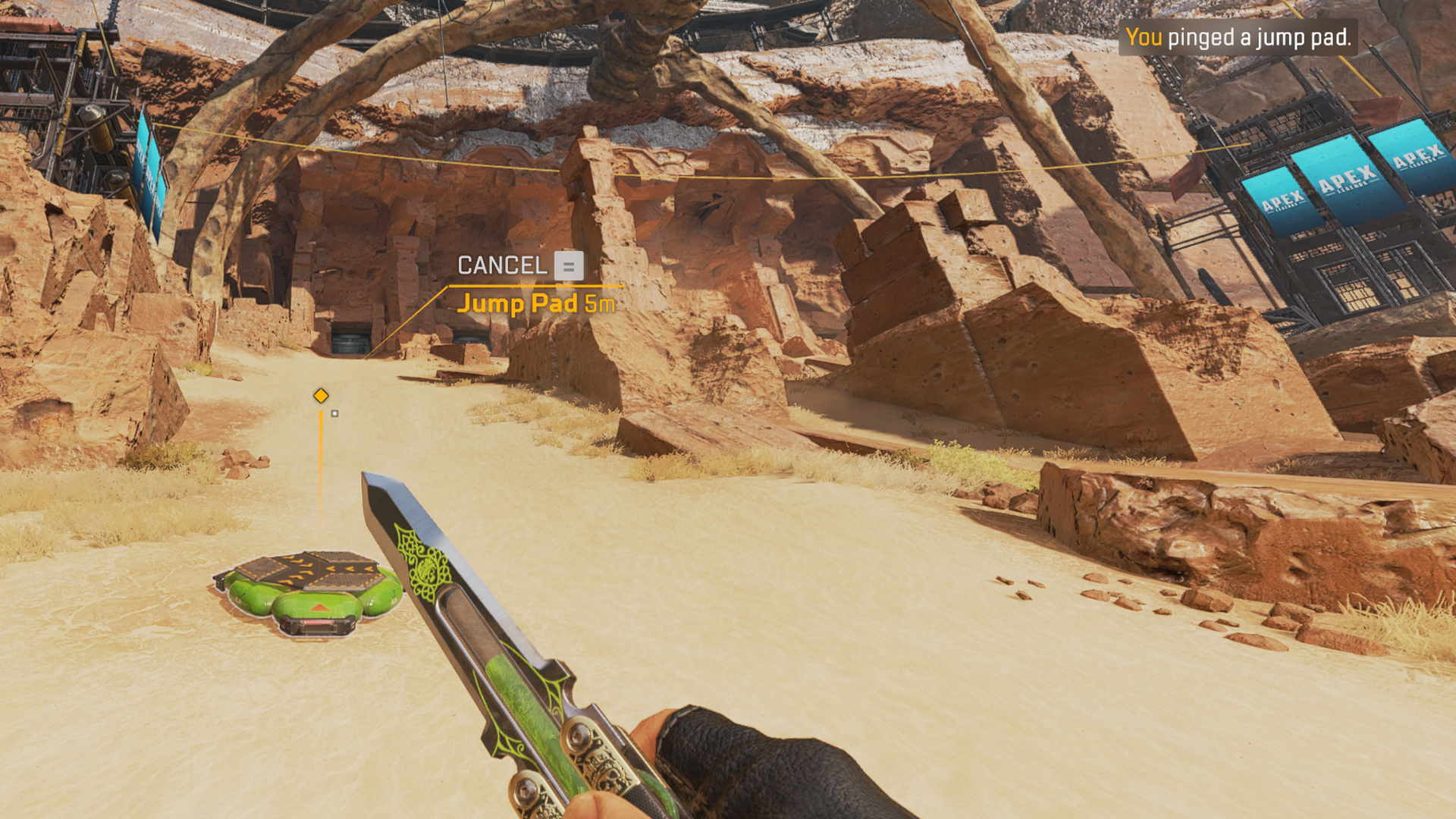Aug 24, 2021 - Technology
EA pushes for more accessible games for players with disabilities
Add Axios as your preferred source to
see more of our stories on Google.

A player uses the Ping System in "Apex Legends" to let the team know of the placement of a Jump Pad. Image: Courtesy of Electronic Arts
